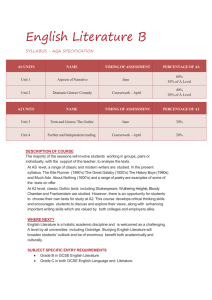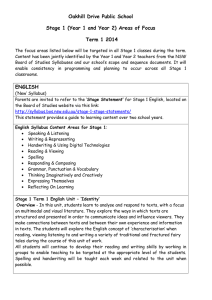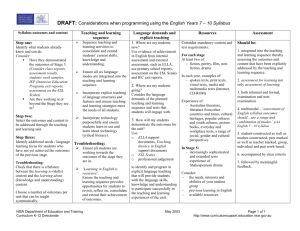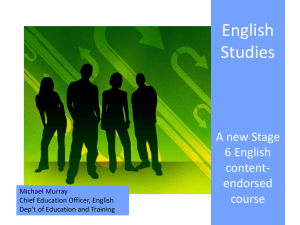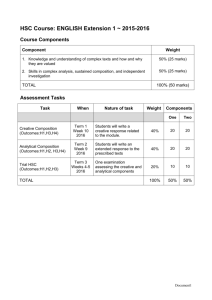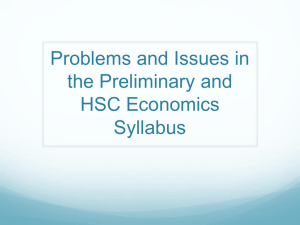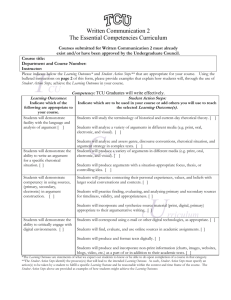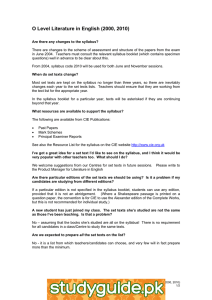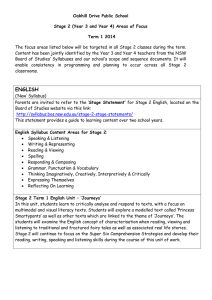The-HSC-English-Syllabus-â
advertisement
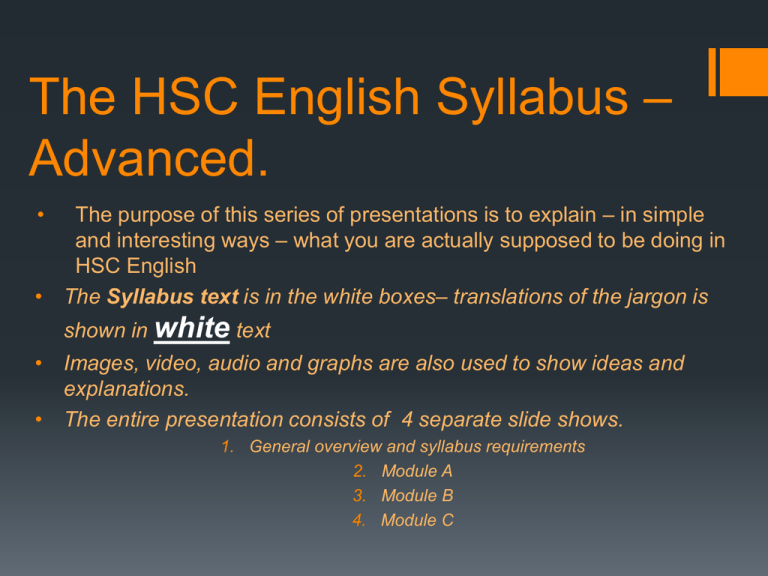
The HSC English Syllabus – Advanced. • The purpose of this series of presentations is to explain – in simple and interesting ways – what you are actually supposed to be doing in HSC English • The Syllabus text is in the white boxes– translations of the jargon is shown in white text • Images, video, audio and graphs are also used to show ideas and explanations. • The entire presentation consists of 4 separate slide shows. 1. General overview and syllabus requirements 2. Module A 3. Module B 4. Module C Advanced English – Modules direct from the syllabus… Module A: Comparative Study of Texts and Context The comparative study of texts in relation to historical or cultural contexts. What does any of this mean? Module B: Critical Study of Texts A single text study – the evaluation of ideas and indicative expression. Is this information just the secretbusiness of English Teachers? Or is it also supposed to be for students and parents? Maybe even employers? Module C: Representation and Text The study of how textual forms, choice of language and perspectives represent information, processes and ideas. The purpose of this series of presentations is to explain – in simple and interesting ways – what you are actually supposed to be doing in HSC English Why can’t they write this in “plain English” – in a more appealing and interesting way? • To see how much fun literature can be! • The part that words and language-style play in creating friendly communication THIS MEANS Students will come to value and appreciate: the role of language in developing positive interaction and cooperation their developing skills as users of English the pleasure and diversity of language and literature • To see just how many different types of literature (and how many different ways of making it) there are (and… have been) • literature is just a more sophisticated word for texts • To see how words, language style and literature changes and exists in your everyday lives. THIS MEANS Students will come to value and appreciate: the study and use of English as a key to learning reflection on their own processes of responding, composing and learning • If you learn how to read and write and speak properly – you will be able to learn more easily in other subjects • You will think about how you learn – what you’ve done well – you’ll learn what your opinion is – you will question why have this opinion? (why do you feel the way you do about certain topics and events and characters). English as a language of communication and culture The language someone speaks – and the “way” they speak their language – is one of the first things you will notice about a person. The way you speak – shows soooo much about you! For example, what you say and how you say it shows your: Education level Your geographic home (Aussie instead of NZ) Your family background Your age Your social status and “sub-culture” (eg – skater talk, “gangsta” talk, “posh” talk, etc…) The way you talk and listen to other people can also determine whether or not you “get your own way” too!!!! Students will come to value and appreciate: appropriateness, subtlety and aesthetics in language use. Relevance, suitability, rightness, Sensitivity, without being obvious, being restrained artistry, beauty, appeal, image of

